
Haiti, Latin America: Week in Review
Haiti Cholera Outbreak Spreads To Port-au-Prince
November 10, 2010 By Staff
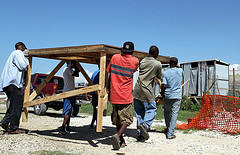
British and Haitian Red Cross workers establish an observation center to monitor and treat cholera cases.
Today in Latin America
Top Story — The cholera outbreak in Haiti has now spread to the country’s capital, Port-au-Prince, the Haitian health ministry said on Tuesday.
Doctors in the city are treating 73 people for the water-born disease and medical officials worry that cholera may become a way of life that could afflict as many as 270,000 people over the next several years.
“Cholera is a complex public health emergency under any circumstances,” said Jon Kim Andrus, deputy director of the Pan American Health Organization, according to The New York Times. “In Haiti, the hemisphere’s poorest country, the problem is even more complex.”
Haiti is in a crippled state, as it is still recovering from the earthquake in January that killed more than 250,000 people and left one million homeless, many of whom now live in tent encampments. The country was also hit by Hurricane Tomas last week, which killed 21 people, left 6,610 homeless and caused major flooding that allowed cholera to spread.
The cholera death toll stands now at 583 and 9,123 Haitians have been hospitalized with symptoms of acute diarrhea. Officials in Haiti’s government admitted that the outbreak is evolving and has not yet peaked.
“This is now a matter of national security,” said Dr. Gabriel Timothee, director general of the Ministry of Health, according to The Miami Herald.
The population of Port-au-Prince stands around 2.5 million and 3 million people, with about half living in homeless encampments built after the earthquake.
“We expect transmission to be extensive and we have to be prepared for it, there’s no question,” Andrus said, according to The Associated Press. “We have to prepare for a large upsurge in numbers of cases and be prepared with supplies and human resources and everything that goes into a rapid response.”
Just Published at the Latin America News Dispatch
- Sex work is flourishing in the aftermath of Haiti’s earthquake. Julie Turkewitz sends us this report from Port-au-Prince.
- Juan Víctor Fajardo reports on Bolivian President Evo Morales’ struggle to balance environmentalism and the demands of an economy still driven by mineral extraction.
- Argentines came together to remember their former President Néstor Kirchner at his funeral on Monday. Joel Richards sent us this photo essay from Buenos Aires.
Headlines from the Western Hemisphere
North America
- Texas Republican lawmakers, buoyed by the defeat of 22 state Democratic lawmakers last week, called the election a mandate for the toughest possible crackdown on illegal immigration and are already filing bills for legislative action in January.
- An attorney says the federal government has agreed to reopen the case of an asylum seeker from war torn Yugoslavia facing deportation because he was 40 minutes late to a 1995 immigration hearing.
- A cruise ship stranded offshore with 4,500 passengers and crew members will be towed into a Mexican port, the Coast Guard said Tuesday.
- U.S. efforts to stop the “iron river” of guns headed south to Mexico’s drug war are being hampered by failures at the federal agency tasked with tracing and seizing the weapons, according to a Justice Department report.
- Amador Cortes-Mez from Mexico went on trial Tuesday on federal charges of masterminding a sex trafficking scheme by luring young women to the Atlanta area with the false promises of better lives, good jobs and even romance.
Caribbean
- Health workers feared a surge of cholera cases in the shantytowns and muddy tent camps of Haiti’s capital as suspected cases piled up Tuesday and a laboratory confirmed a case originated in the overcrowded city.
- Cuba in the future will be a country that promotes foreign investment, expands the private sector and dutifully pays off its debts, according to a proposal revealed on Monday by the ruling Communist party.
Central America
- A woman from Guatemala caught in an immigration sweep is asking the Missouri Supreme Court to return her son to her from his adopted parents.
- Inflation in Guatemala increased 0.53 percent last September to October, reported the Guatemalan National Statistics Institute.
- According to U.S. federal investigators, undocumented Honduran immigrant Kenneth Barahona, 19, tried to abduct up to 30 undocumented immigrants at gunpoint from a stash house used for immigrants, weapons and other supplies.
- The Salvadoran teenager who threw her newborn baby out a window in East Boston two months ago says she became pregnant when she was raped in El Salvador and was later warned she would be harmed if she told anyone, her lawyer said Monday.
- Google Maps has retraced the border between two Central American countries after a territory dispute developed.
Andes
- The merger of the Peruvian, Chilean and Colombian stock markets to create the first integrated exchange in the region should be completed by the end of January stock exchange officials said Tuesday.
- Ecuador posted a trade deficit of $280 million in September of 2010, compared with a deficit of $47 million in the same month of 2009, the central bank reported Tuesday.
- Venezuela’s Central Bank says the country’s prices rose 1.5 percent in October, putting its annual inflation rate at 27.5 percent — the highest rate in Latin America.
Southern Cone
- 18 people died in a 27-hour prison riot in the northern Brazilian state of Maranhão on Tuesday. Five hostages taken in the riot were later released.
- An unnamed Mexican man leasing the Los Reyes copper mine in northern Chile where two miners were killed on Monday has fled Chile, according to officials.
- A research expedition planned by the British Natural History Museum could endanger isolated indigenous groups in Paraguay’s Chaco region.
- Outgoing Brazilian President Lula da Silva will spend two days in Mozambique in his last trip to Africa as president.
Image: British Red Cross @ Flickr.
Subscribe to Today in Latin America by Email
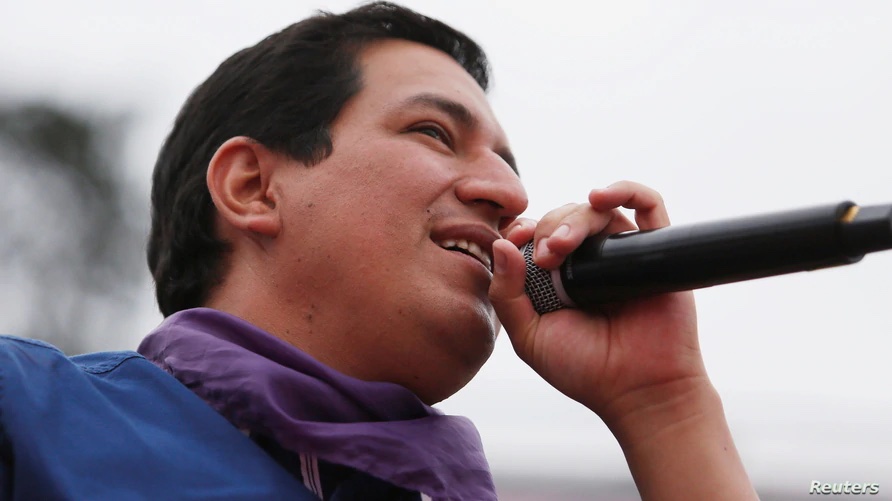
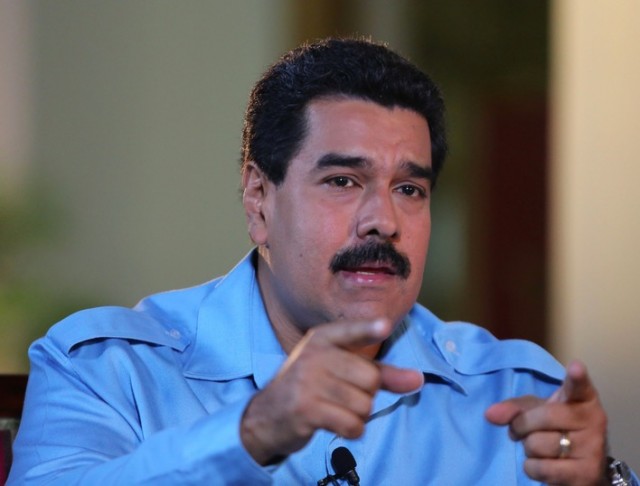

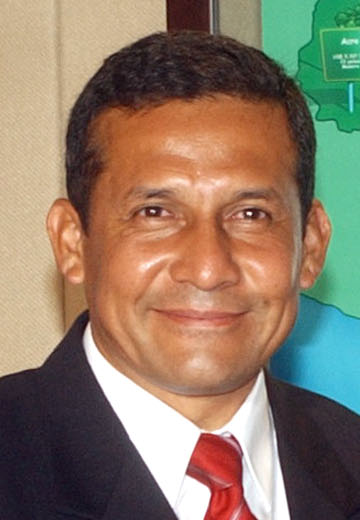
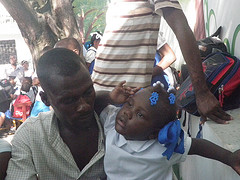

1 Comment
Cholera in Haiti: Is the United Nations Mission trying to cover up the origin of the epidemic? By Stanley Lucas (Version Francaise disponible)
Before and after the January 12 earthquake that devastated Haiti, the country was cholera-free — it never appeared on the global list of countries contaminated by cholera. That all changed in mid-October this year when a cholera outbreak was registered in the lower Central Plateau immediately giving rise to many theories on the origin of the outbreak. Recent developments pinpoint the source to the Nepalese base of United Nations Mission (MINUSTAH) in Haiti. For more click here: http://solutionshaiti.blogspot.com/2010/11/cholera-in-haiti-is-united-nations.html
Comments are closed.